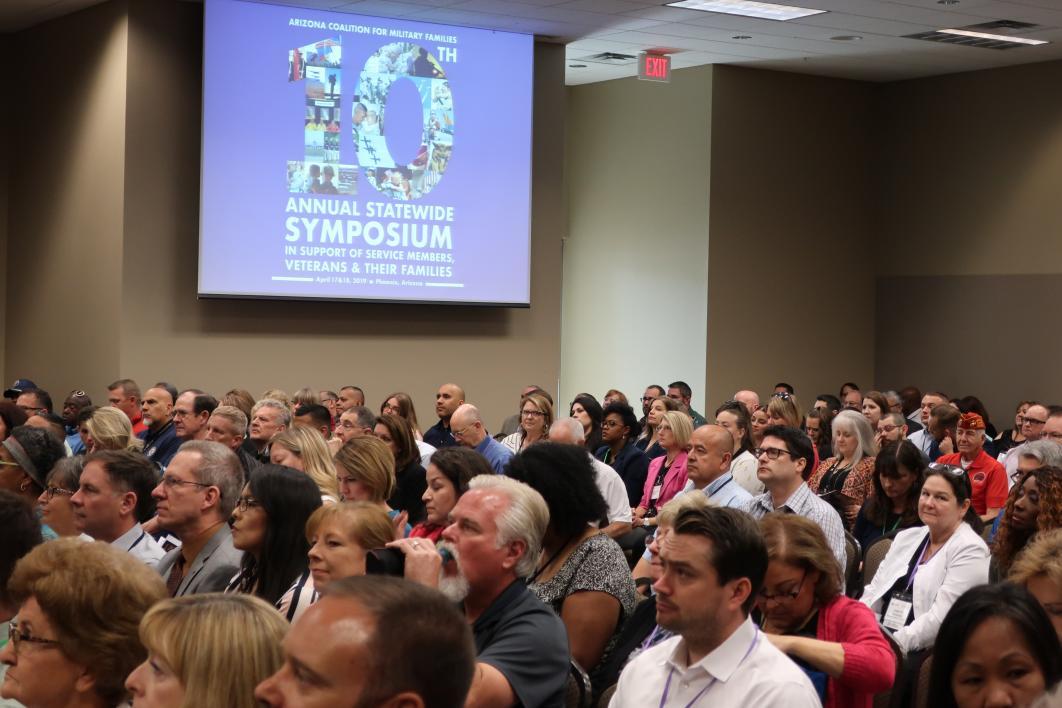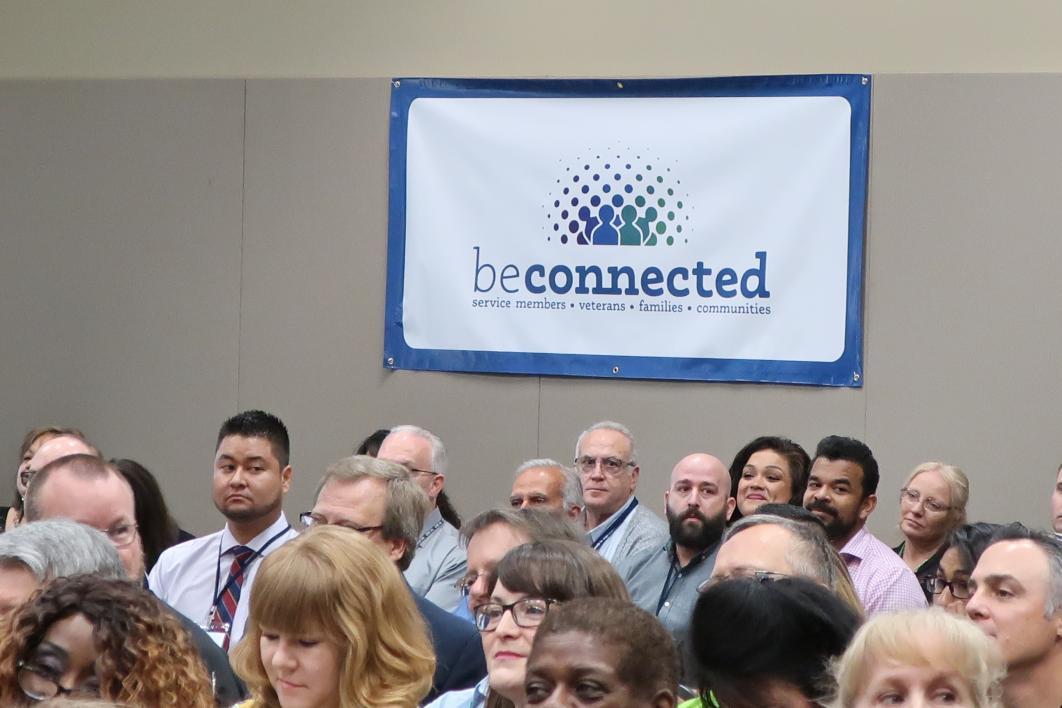ASU pursuing deeper veterans' wellness engagement

Arizona State University representatives from across campuses attended a symposium April 17–18 in Phoenix to gain insight into the veteran space, network with local and military veteran community leaders and gather ideas on how the university can help further.
ASU was a key sponsor of the Arizona Coalition for Military Families' 10th annual Statewide Symposium in Support of Service Members, Veterans and Their Families — a highly attended event that included White House representation and a national Department of Veterans Affairs lead.
The coalition serves as the programmatic arm for the Arizona Department of Veteran Services.
“These are significant times as we look to improve the quality of life of every veteran in Arizona,” said ASU alumna Wanda Wright, director of the Arizona Department of Veterans' Services and a retired Air Force colonel.
Due to the Arizona Coalition for Military Families and the collective efforts of many other groups to support veterans, Arizona is unique.
“This kind of work does not happen in most other states,” Wright said. “We are unusual in the way we are able to work together to influence the veteran echo system to manifest goodness for servicemembers, veterans and their families.”
ASU’s interest in the veteran echo system is twofold, supporting student veterans on campus and those out in the communities, plus driving innovative research and curriculum opportunities. The school’s military-affiliated student population grows each year, and currently hovers at well over 8,000 with continued growth expected. The university also owns comprehensive tools and resources to socially embed with public agencies that are on the front lines of veteran/military support.
One of ASU’s colleges with a significant number of student veterans is the College of Health Solutions. The college is aware of the unique challenges veterans face when they transition out of the military and onto campus. Its counselors, some of whom are also veterans, are there to assist.
“We are trying to understand the veteran experience,” symposium attendee and College of Health Solutions Dean Deborah Helitzer said. “And how their education at the College of Health Solutions can be enhanced by thinking about their situation from a more holistic perspective. We recognize that the veteran students come from a team environment to the university where they are individual learners. We believe our collaborative, experiential approach to education will be effective for veterans who are interested in careers in health.”
The college engaged with the VA to look at different areas where new collaboration may be possible, the dean said. Both ASU’s College of Heath Solutions and Edson College of Nursing and Health Innovation participated in strategic working sessions with the Phoenix VA Medical Center in January.
One of the key Arizona Coalition for Military Families programs College of Health Solutions faculty and students are engaged in is “Be Connected.” Launched in 2017, Be Connected is a collaboration between public and private stakeholders in Arizona aiming toward “upstream” suicide prevention in the veteran community.
“Right now Be Connected is a responsive model,” said Nicola Winkle, coalition project director. “You call, the team answers. You need help, it is provided. What we’ll be adding to complement this responsive approach is a proactive approach where we actively seek out and connect to segments of our military veteran and family population.”
Transitioning Be Connected to a proactive model requires data for focusing efforts, Winkle said. Data can prove what works, show how training and support increases intervention and reveal risk and protective factors of the military population. It can also help identify vulnerable populations within veteran communities with higher risk and lower protective factors.
The symposium featured two days of programming and 11 learning tracks “all focused on increasing knowledge, skills and abilities for serving and supporting the military, veteran and family population.” The Pat Tillman Veterans Center hosted a roundtable discussion on building a veteran-supportive college campus, Veterans Upward Bound reps provided on-site resources throughout the event and ASU’s School of Social Work, a unit within the Watts College of Public Service and Community Solutions, conducted a mindfulness and meditation session.
ASU participants also included around 25 faculty and staff from ASU’s Educational Outreach and Student Services, Enterprise Marketing Hub, Office of Government and Community Engagement, The College of Liberal Arts and Sciences, Office of the President, Flag Officer Council, the Public Service Academy, and affiliate ASU Research Enterprise.
Top photo: Attendees of the Arizona Coalition for Military Families' 10th annual Statewide Symposium in Support of Service Members, Veterans and Their Families mingle at the exhibitor fair in Phoenix on April 16. Photo by Jerry Gonzalez/ASU




